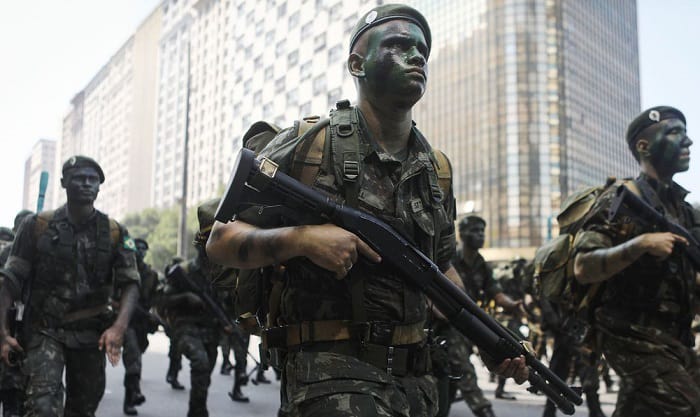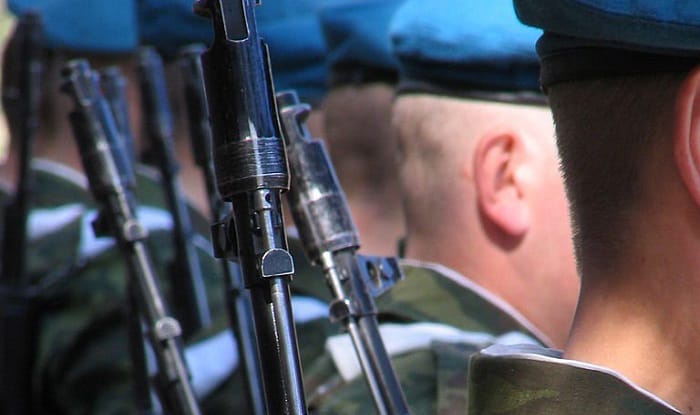If you are looking for the answer to, “How did military leaders prevent democracy in Brazil?” You would know that there are five answer options that come with it:
The three correct options are: they (1) regulated political parties, (2) controlled elections, and (4) arrested legislators.
Continue reading for more details on this topic!
Table of Contents
How Did Military Leaders Prevent Democracy in Brazil?
Brazil has gone a long way to becoming a democratic republic. Here is the summarized political timeline:
- 1822 to 1831 – Empire
- 1889 to 1930 – Old / Oligarchic Republic
- 1930 to 1945 – (Getulio) Vargas Years & Facism
- 1946 to 1964 – Populist Years
- 1964 to 1985 – Military Dictatorship
- 1985 to 1990 – New Republic
- 1990 to 1992 – Fernando Collor de Mello Government
- 1992 to 1994 – Itamar Franco Government
- 1995 to 2003 – FHC Government
- 2003 to 2011 – Lula Government
- 2011 to 2016 – Dilma Rousseff Government
- 2016 to 2018 – Michel Temer Government
- 2018 – Present – Jair Bolsonaro Government
From the timeline, we will focus on the period of military dictatorship between 1964 and 1985. It began after a coup d’état against President João Goulart by the Brazilian Armed Forces that was backed by the U.S government. The coup was also supported by the Catholic Church and some anti-communist civil movements in the middle and upper classes.
After Brazil attempted to create a democracy, the military…
… regulated political parties
In 1967, the military enacted the Sixth Constitution, which restricted the Constitution. This, in turn, stifled political opposition and freedom of speech.
… controlled elections
For its guidelines, the military regime embraced anti-communism, economic development, and nationalism. But it pulled strings behind elections. In 1979, João Gidueiredo rose to power.
President João Gidueiredo passed the Amnesty Law in the same year he became President. This law protected military leaders and human rights violators at the time. They were exempted from being trialed for the crimes they committed.
… arrested legislators
The military regime reached its “golden age” in the 1970s, which was also presumed a Brazilian Miracle. There was exceptional economic growth, where the average annual GDP growth was as close as 10%.
However, during this time, the military censored all media, arrested, tortured, and even exiled its dissidents, which included legislators in political oppositions.
Until today, many people question if Brazil’s democracy is flawed and if the “real rulers” behind the curtains are military leaders, particularly through Bolsonaro’s presidency since 2018. Critics claim that Bolsonaro is the military’s vehicle to subtly reclaim political power. The proof lies in the fact that:
- In 2018, 72 military and police candidates were elected to state and federal officer
- In 2020, 859 military and police candidates won municipal contests
- In 2018’s first term, Bolsonaro budgeted $5 billion in new federal money for the Brazilian Armed Forces and police
- Bolsonaro also repeatedly attempted to pass a bill that would make it more difficult to prosecute military members and police members for crimes like homicide
- Bolsonaro continued to push for public state and local schools to militarize in exchange for logistical support and federal funding
Conclusion
Now that you have finished reading this article, you no longer have to wonder about the answer to, “How did military leaders prevent democracy in Brazil? “ Hopefully, this has been interesting and informative.
If you have any questions to ask or thoughts to share, leave them in the comments below. And, if you think this article would benefit a friend, share it with them. Thank you in advance!

I am Everett Bledsoe, taking on the responsibility of content producer for The Soldiers Project. My purpose in this project is to give honest reviews on the gear utilized and tested over time. Of course, you cannot go wrong when checking out our package of information and guide, too, as they come from reliable sources and years of experience.


